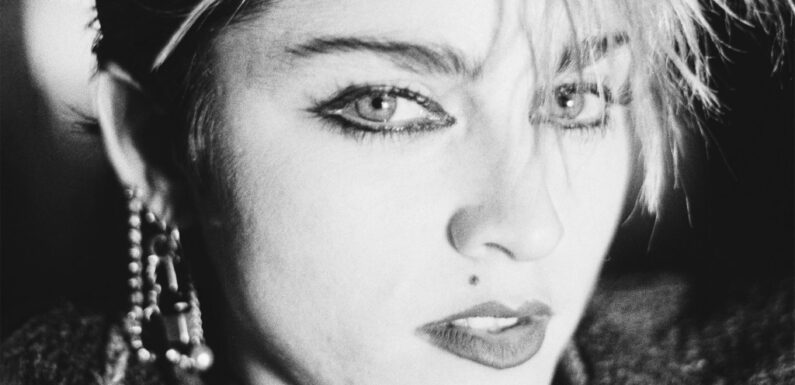
Madonna’s life — and the relentless ambition that fueled her rise — could be the stuff of a great book. And now Pulitzer finalist Mary Gabriel has taken on the challenge. Gabriel, who wrote about the women who helped invent modern art in “Ninth Street Women,” turns her attention to the Material Girl in “Madonna: A Rebel Life,” out Oct. 10. The book follows Madonna’s journey from suburban Detroit to 1970s New York City, where she began cultivating her star power. Ahead of Madonna’s next world tour (set to launch Oct. 14 in London), Gabriel talks about her subject’s New York days.
Madonna has always described her move to New York as courageous, but your book really shows why that’s true.
She went to New York in 1977 for a summer course, and that was the year of the “Son of Sam” murders and the blackout. The idea of a girl like Madonna coming from Michigan — she was gutsy. She had no safety net whatsoever.
In New York, Madonna interacted with the likes of Andy Warhol and Keith Haring, and fell in love with Jean-Michel Basquiat. How did that exposure change her?
The group of people she was involved with didn’t consider barriers. You weren’t a singer or a painter or a fashion designer or a filmmaker — you were all of those things. They had this wonderful freedom. I think people misunderstood and resented her — you hear all the time “She’s not a good singer.” Well, she’s not a singer. She’s a performance artist. She’s a visual artist. She’s a songwriter. She’s a producer. And in the world she came from, you could be all of those things and you didn’t have to apologize for it.
Do you think the city shaped her artistry going forward?
There’s so much misunderstanding involving Madonna. What made her the artist that we know today is her experience in New York. She was raw, she was rough and she was in this creative maelstrom with other artists. There are moments in history of social transition and general desperation, and out of that period comes a new way of looking at art. In the late ’70s and early ’80s in New York, it was happening again, and Madonna was a part of that.
Since New York, Madonna has spent time in Europe, and her more recent output is a bit more severe than her freewheeling “Like a Virgin” era. Do you see the roots of the New York Madonna even today?
I definitely do, and that’s partly because I’m not a fan; I’m not invested in watching her in that microscopic way. But the artist who recorded her first single in 1982 and the artist who is going on tour in October, they are exactly the same. They have the same goals: experimentation, discovery and creation. When people say, “Oh, why doesn’t she retire?” — that’s not a possibility if you’re an artist. She’s often criticized for hanging around with young people, but she goes where the fun is.
I found the outpouring of love after she had a health crisis this summer a little surprising. How do you think she fits into the culture of 2023?
That outpouring of goodwill towards her was very unusual because she’s so threatening to so many people. But I think it’s going to be interesting to see what this concert does. She could really almost have a rebirth. She’ll surprise us once again.
Read More About:
Source: Read Full Article